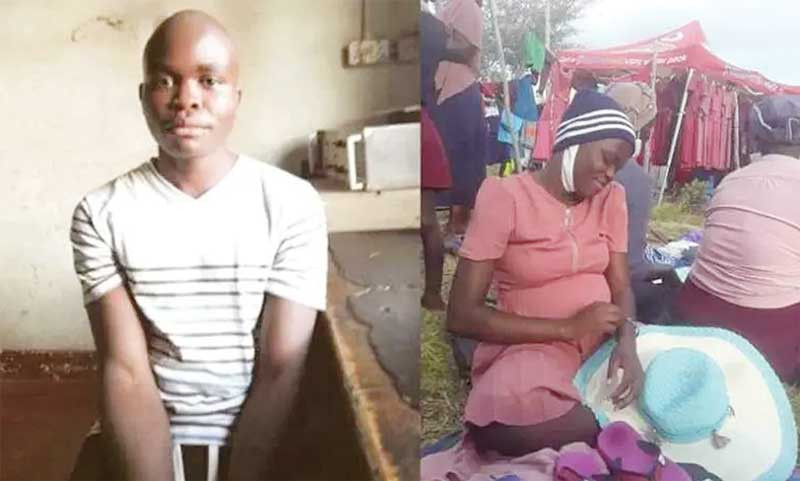
ONE evening in August, Elizabeth Moyo (not her real name) who was 15 then, arrived home from her trade as a sex worker only to find that her older sister wanted her out of their rented room in Waterfalls.
Their parents passed away, and at 15, Elizabeth had already started engaging in sex work in order to earn a living.
As an orphan and as they were struggling to survive, she dropped out of school at an early age, opting to earn a living through prostitution.
She says she had no choice except to elope with one of her boyfriends. Elizabeth did not understand that the country’s laws forbade marriages for people below the age of 18.
“I dropped out of school because we did not have enough money for fees. I was lying idle most of the time, and then I resorted to prostitution. After my sister chased me for engaging in prostitution, I went to live with one of my boyfriends,” Elizabeth told NewsDay.
Her story is just a tip of an iceberg as the country has been experiencing very worrying statistics of child marriages.
A few months ago, there were reports of two nine-year-old girls that fell pregnant. One of them — a Tsholotsho girl has already given birth and was allegedly impregnated by her 13-year-old cousin brother.
A report by Unicef shows that one woman out of three in Zimbabwe aged 20 to 49 is married before the age of 18, while 5% of girls are married before the age of 15.
- Child marriage: A heavy cost for young girls in Africa
- Include minors in budget processes, Mthuli told
- We must stop sacrificing the girl child
- Cartoon: Child marriage cases spike
Keep Reading
Poverty is said to be the main reason girls in the country enter into child marriages.
Junior Parliamentarian for Mutare North constituency Idirashe Munyama says it is imperative for senior members of Parliament to work with child legislators to end the scourge and teach children about their rights to education, health and a good future.
“It is a violation of children’s rights and a form of gender-based violence (GBV) if they are forced to enter into early marriages because of poverty. Early marriages rob children of their childhood and future life opportunities.
“We need a platform that is accessible to everyone, for instance radio programmes where citizens, including children, discuss and advocate for children’s rights.
“We also need our toll line as junior parliamentarians where we can provide an environment for everyone to report cases of child abuse. In most instances, girls are forced into child marriages after they are abused and they get pregnant. Peer pressure is also affecting children; whereby they are encouraged to get into early sexual activities by others. Children are also abused by relatives after they are left by their parents who go to the diaspora for better jobs there,” Munyama said.
Chairperson of a male-oriented organisation, Fathers against Abuse, Alois Nyamazana told NewsDay that men must also join the fight against gender-based violence and child marriages.
Nyamazana urged men to shun cultural practices that fuel child marriages, as well as religious beliefs that encourage men to marry young girls.
“It’s high time we move away from traditional and cultural practices that infringe the rights of girls and women. Everyone in communities should know that children should not be forced to get into marriages, they need to continue with their education as they are children, not brides,” Nyamazana said.
It is very worrying that the country has recorded a number of maternal deaths involving child brides.
One of the most disturbing incidents was that of a 14-year Marange girl, Anna Machaya who died last year while giving birth at an apostolic sect shrine.
The 20-year-old husband was arrested, but he later skipped the country to avoid prosecution.
Nyamazana blasted some church doctrines saying they were responsible for fuelling child marriages.
Lead child care worker for the Department of Social Development, Priscilla Rongoti, believes that community engagement and punishing the culprits can lessen the scourge of child marriages.
“To eradicate child marriages, there is need to put in place very stiff laws and policies on the abusers — and these must be implemented. There is need for behaviour change and to empower young girls so that they do not view marriage as a way out of poverty,” Rongoti said.
In 2016, Zimbabwe’s Constitutional Court outlawed that marriage before the age of 18.
This followed an application by two women who sought to have the legal age of marriage moved to 18 for both men and women.
The matter was brought before the courts by Loveness Mudzuru and Ruvimbo Tsopodzi, who were represented by lawyer, Tendai Biti.
The two women were just young girls when they were forced into marriage.
The United Nations Population Fund describes child marriages as a violation of human rights.










